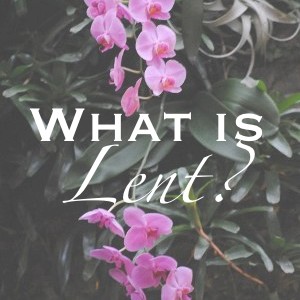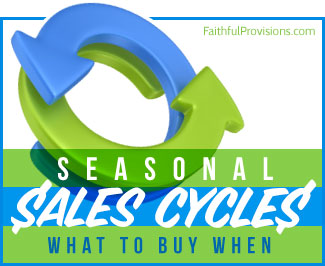What is Lent?
This time of year, many folks are asking, What is Lent? Lent begins on Ash Wednesday, which this year will be February 13. Many Christians use this period of the 40 days before Easter as a holy season of remembering everything that Jesus Christ did in order to assure for us our salvation. In order to be able to focus on this time, people often accompany these 40 days with a fast of some kind that keeps Christ and His sacrifice at the forefront of their minds.
What to Give Up for Lent
If you’re going to choose what to give up for Lent, be sure to choose something that is a personal sacrifice for you. Otherwise, there will be no meaning behind it. The point is that when you give something up for Lent, every time you realize that you “miss” it, you have an opportunity to pause and thank the Lord for His sacrifice for you. You have the chance to ponder the fact that whatever you have given up is nothing compared to what He gave up for you. That is the real meaning of Lent. It’s a time of reflection.
So, if you are a coffee drinker, for example, and you decide to give up your morning cup of coffee, then every morning as you miss your java, you have the opportunity to pray and meditate on what Christ has done. Some people determine to read through the New Testament during these 40 days. If you decide to fast from something, digging deep into God’s Word will help you stay strong. Others are intentional about, rather than giving up, just giving–doing something every day that helps someone else.
Is Lent in the Bible?
You won’t find Lent specifically mentioned in the Bible. Lent is a tradition that helps believers focus on Christ during the 40 days before Easter. It begins on Ash Wednesday (the day after Mardi Gras). Many Christians mark their foreheads with ash as a sign of repentance on that day and to let others know of their intent to fast and focus on Christ until Easter Sunday. Here are some articles and Scripture you might enjoy:
- What is Lent? – Whitestone Journal has a great article explaining the meaning of Lent HERE.
- Biblical definition of true fasting – Isaiah 58 is known as the biblical definition of “True Fasting.” After reading what Isaiah has to say, you’ll understand that true fasting has nothing to do with voluntarily giving up coffee or soda or sweets, but instead reaches deep into the heart. Read this passage in several different versions to get a thorough explanation of the kind of fast that God does indeed require. Start with the New Living Translation HERE.
- Read Through the New Testament During Lent – Many people choose to read through the entire New Testament during the 40 days of Lent. This will profoundly affect your own celebration of Easter. This FREE downloadable 40-Day Reading Plan HERE makes it doable.
Do you participate in Lent? Why or why not? If you are practicing Lent this season, what are you giving up?





I grew up in liturgical churches (Lutheran and Episcopal), so I always knew about Lent. I’ve noticed a lot of interest in Lent this year. My nondenominational church has a plan for reading each of the four Gospels before Easter Sunday.
I hesitate to share my opinion because I feel I will be in the minority. Let me say that my opinion is one born out of my own personal conviction and research I did for myself. I have no desire to hurt or offend or “troll”, I only want to answer your question with intelligence and in love. So here it goes 🙂 ……….Lent is one of those religious observations that came out of pagan worship that the church sanitized for its own purposes. Its now so far removed from those days that we as modern Christians have no connection to its roots. The whole Easter season for me (Christmas too) is one that I have struggled with as a Christian because some quick research will show that their origins are anything but Godly. We chose to refer to Easter as Resurrection Sunday around our house as the very name Easter is a variation of the name of a fertility Goddess. Lent is part of her worship. A very pagan friend of mine thinks its hilarious that every high holy day of theirs, we are celebrating right along with them. So now, culturally, these things are ingrained in us, and I would never step on anyones right to practice whatever they want. Fasting and remembrance are powerful in the life of a Christian, I feel like we should not confine them to 40 days of the year. I hope you read this in love and not as an attack on a belief system. I guess my point is, we chose to not celebrate Lent, however both Resurrection Sunday and Christmas present powerful opportunities to present the Gospel to people who may not be receptive to it any other time of the year and we celebrate both with a decided emphasis on Jesus and keep both Santa and the “Easter Bunny”(super pagan symbol, BTW) pretty low on the radar. What is hard for me is that I am hesitant to share my opinion about this with people I know (I come from a Pentacostal background) as Lent seems to be super “trendy” this year. So unless I get asked specifically, I keep my mouth shut because I believe that if God wants to talk to you about what and how you celebrate, then He will in His time. Again, this is only my personal conviction. I am all for keeping the sacrifice of Jesus in the forefront of our minds <3
Thanks so much for your perspective, it has given me some good things to think about.